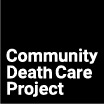The Community Death Care Project’s blog is an archive of our activities. We will:
- share information that has been created for and in our workshops,
- share experiences and images from the sessions and events,
- publish recorded online workshop sessions and transcripts (written text) so you can view them on your own time,
- show community artwork and creations that are submitted with permission to the project.
If you want to share something on the CDCP blog that you have made or written that is related to death work and your lived experience, please contact access@communityDeathCareProject.ca.
This is Assisting Living: Author reading by Dr. Stefanie Green & Q+A
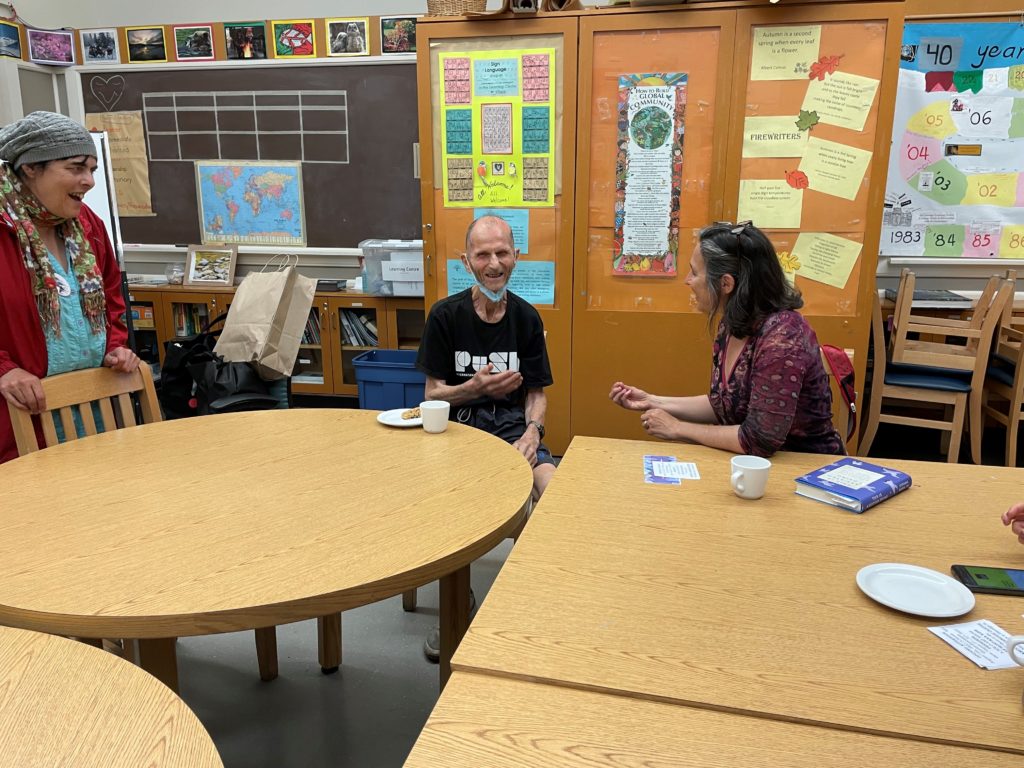
Memory Is a Living Being: A Eulogy Writing Workshop with Hari Alluri
I acknowledge that if you’ve come to this workshop, you’ve come to do what may be difficult work.
I acknowledge and welcome you to acknowledge that grief is one of the strongest feelings we can experience.
I welcome you to acknowledge that loss, no matter how deeply personal, is one of the experiences that connects all beings.
I acknowledge that it is difficult to be compassionate toward each other when we aren’t compassionate towards ourselves, so I welcome us to be in our highest compassion towards ourselves today, so we can be in our highest compassion towards each other.
In doing so, I acknowledge that feelings of guilt and shame and fear often arrive side by side with loss:
I welcome us to acknowledge these feelings AND also to ask these feelings to give us space to do the work we have come here to do today:
I ask us to welcome the emotional beings of Love and Memory and Curiosity and Wonder to be our primary guides as we do our work today.
I welcome us to acknowledge that each of us, and each of those we love, is a full and complete being, that we are complex wholes and that part of the urge inside this workshop is work with the wholeness of us and those we love.
At the same time, no single workshop can carry the fullness of a life: a eulogy is always partial even as it welcomes wholeness: let’s be compassionate if what we write feels incomplete, knowing that we are working with our intentions, and intending this work to be as complete as it can be within the time we have to share.
I give thanks to each and all of you for being here, in mind and body and emotions and spirit.
Collective Poem 1: gathered by Hari Alluri’s workshop group with language from the readings
with language from: Faiz Ahmed Faiz, Etheridge Knight, Paul Celan, Alberto Ríos, Jónína Kirton, Joy Harjo
Elegy
to anyone listening in the dark, let me hear you
your death ash[es] in my mouth
They did not disappear
we are the secret citizens of the city
And we travel unmapped roads.
your soul may play you
in the unbound
to be dismantled tomorrow
dope death dead dying and jiving
bright bone white crystal sand glistens
the world is bare [without you]
the grey of your absence, the color of poison, of thorns,
the yellow of autumn, the red of flowers, of flames,
the gold, the season ablaze,
when we meet again, this is your homecoming
Original: live gathering of language in relationship to the questions:
with language from Jana Lynne Umipig, Jónína Kirton, lucille clifton, Joy Harjo, Alberto Ríos, Cemal Süreya, Chris Abani, Nikki Giovanni, Faiz Ahmed Faiz, César Vallejo, Etheridge Knight, Willie Perdomo, Rita Dove, suheir hammad, Yannis Ritsos, Paul Celan, Adam Zagajewski, Hari Alluri
what is to share:
go home I am waiting for you there
comforting silence around
what inspires us
you sing to him softly in a language only the 2 of you speak
my own blank space sitting exactly like me
all enough you will want
what is real?
pumped blood
sharp sounds by the door drowning in whisper
grit on my teeth
some of us are born with nerve endings longer than our bodies
the sea and trees and the sky and birds and fuck
what is death?
our age ends
the future in sunlight
“when somebody psses away, depending on the connection, you’re left with a space that’s no longer filled
with that person”
the future never happens
a man, god, a language
my own blank space
we are transforming into a greater, truer self
what is transformation?
the sky was the dead end of sight
the road was just a road, wine merely wine
as if some ceremony keeps tugging at my [your] coat
you will want to be brave
death always has a shape to introduce
what is invitation?
the air conditioner is connected
Don’t leave now that you are here, the sky
the rest is prayer and even more prayer
chorus for the coming of
babies taking a handful of sand or dirt into their mouth
the mating call of motorcycles
Come on shake a leg,
what is control / autonomy / its opposite?
you will cry water into flames
vulture your own heart to feed
down them, my heart is walking on foot
their attempts to wash away do not work
even thirst is a gift
sit beside a tree and sip tea
what is care?
my best friend scolded me the way you hug me now
come here she said I’ll teach you a poem
if we’re lucky larger than real life inside this poem
must learn to bear the pleasures as we have borne the pains
All poets understand the final uselessness of words
We are chords other chords to other chords, if we’re lucky to melody
Nikki Reimer’s GRIEFWAVE
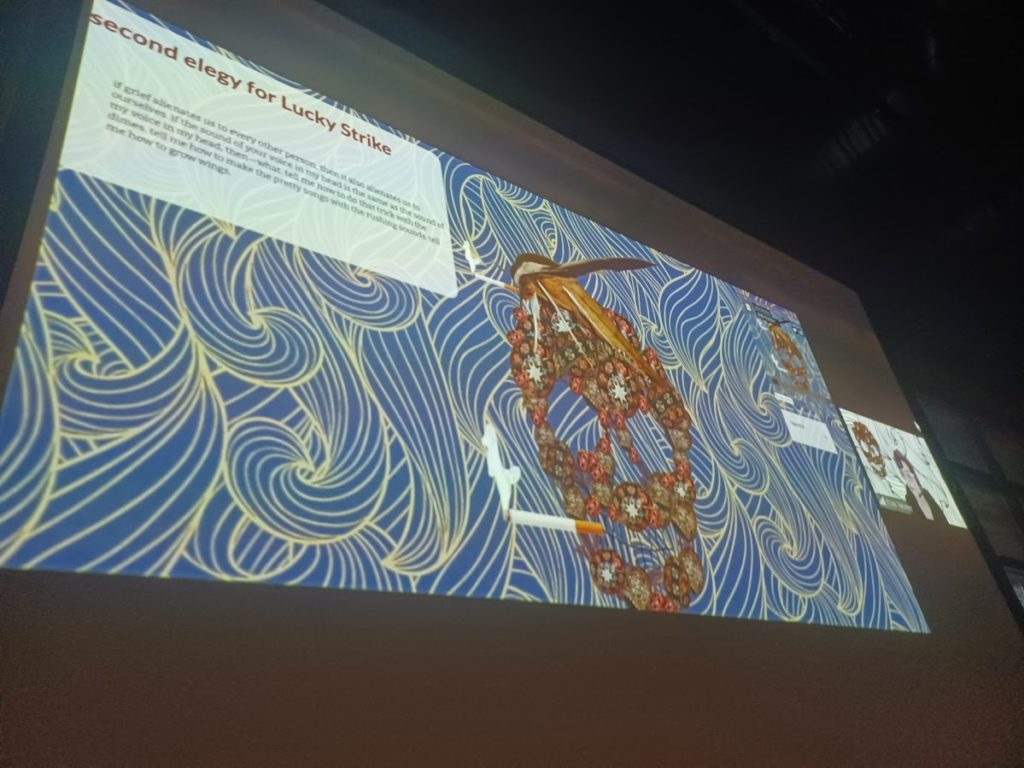
A conversation with Emily Bootle of
Koru: Cremation, Burial, Ceremony
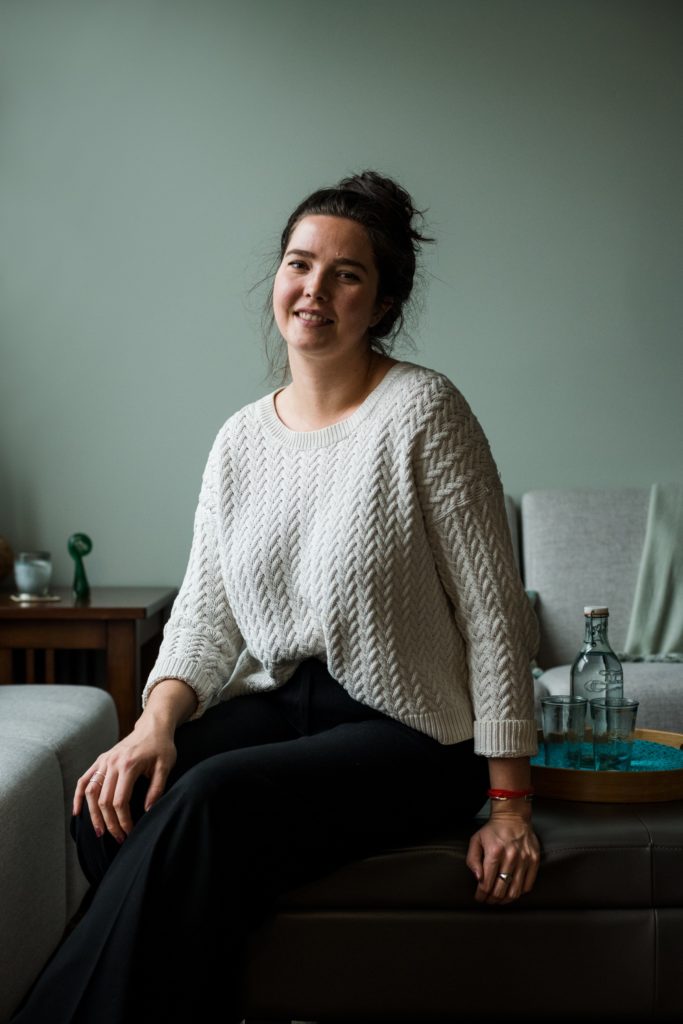
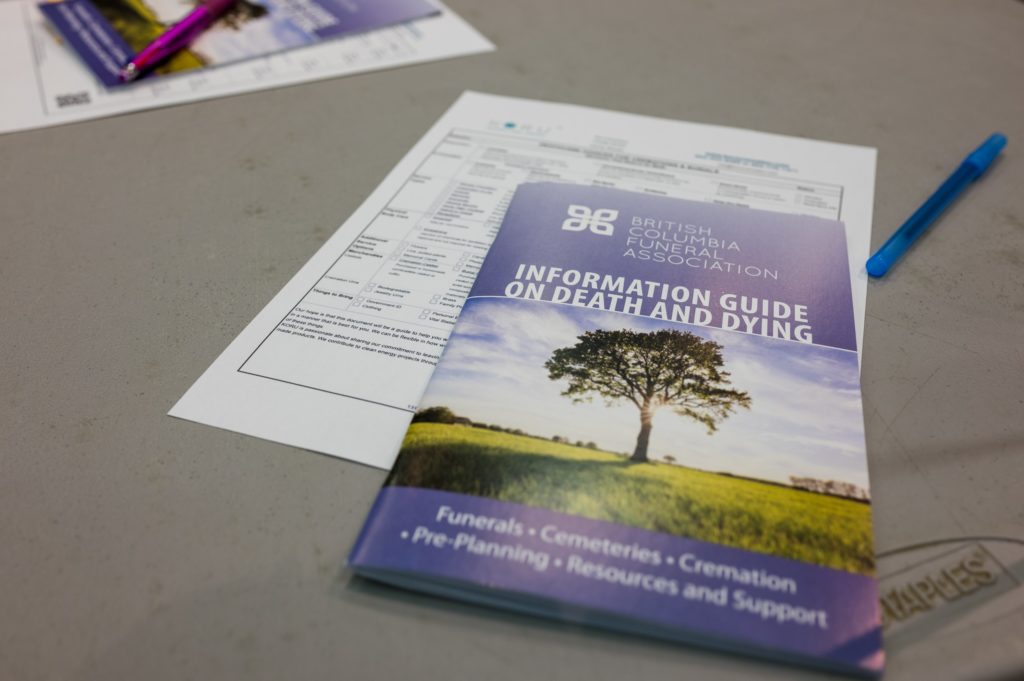
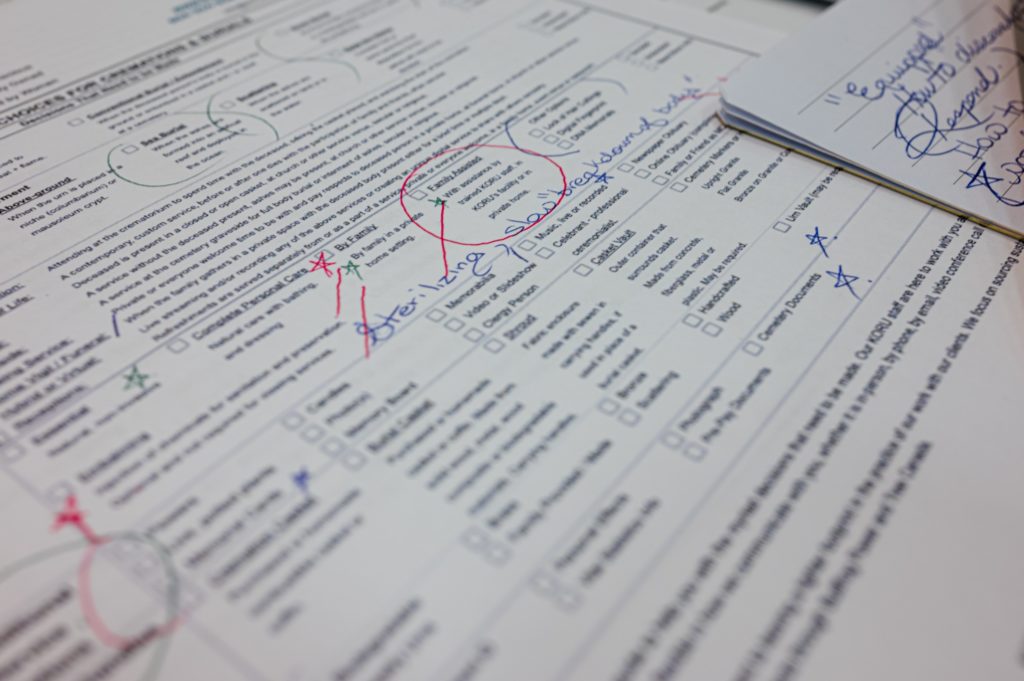
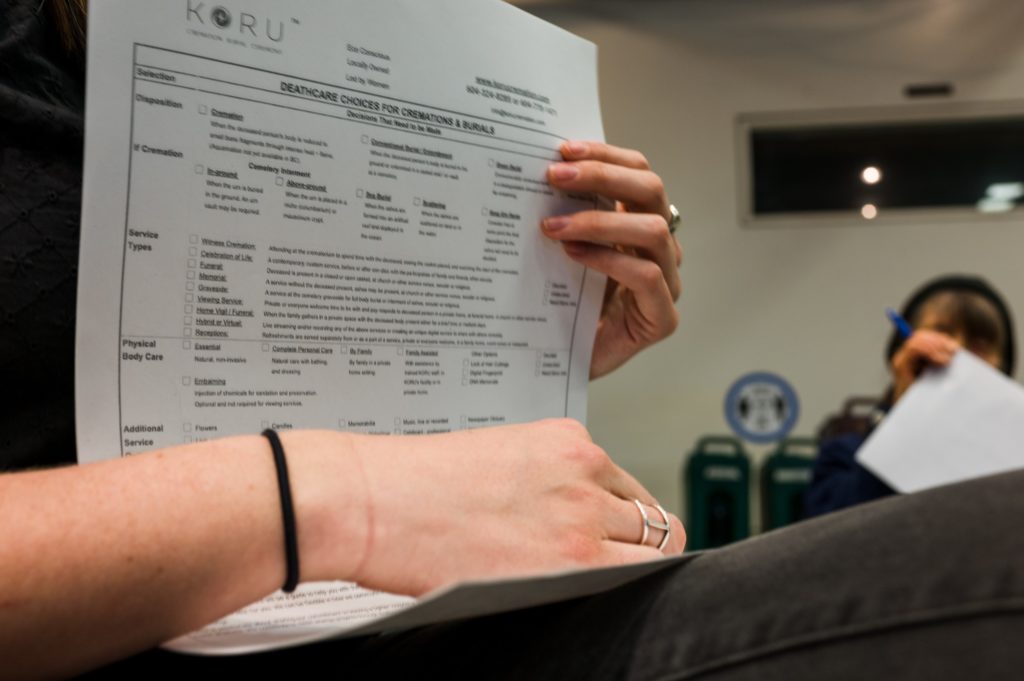
Beverly Walker: Hi, Emily, thank you so much for coming to Carnegie Community Center today. Death Care is a subject that a number of our community members have wanted to get more information about. I was wondering if you could you share with us what is one of the most common misconceptions that people have?
Emily Bootle: For Death Care Services generally, I would say the biggest misconception is that there’s kind of one way of doing things. That you can either have a big funeral or you’re doing basically nothing at all. And there’s actually a lot in between. There’s a lot of possibilities in between that people can use or they just want something that’s in between. So I think that that was something that the funeral industry has played a part in perpetuating a bit. Kind of a misunderstanding and a lack of education for our communities. But I think that’s changing. So I think people think that you can’t call a funeral home unless somebody has died. But really, you can talk to funeral directors at any time. And ask them questions and use them as a resource in your community, so it’s really I think people are just have a greater distance than they maybe need to from death in general.
Beverly Walker: Can you share with us like how you got into this line of work?
Emily Bootle: I did a bachelor’s degree in psychology and was trying to figure out what I wanted to do afterwards, as we all do. It’s like a general diploma at this point. So I volunteered with victim services to the RCMP in Kamloops where I’m from, and just to see what it was like. Not necessarily because I wanted to work in police services, but just because it’s kind of a community activity or community role. So I did that volunteering and part of the training and one of the things that you do is you attend next of kin notifications. If there’s an incident in the community and somebody has died and the police are present and Victim Services gets dispatched. So I learned in that training that basically the training was like” “here are the funeral homes, call one.” And I was shocked. We’ve got our Ministry of Health. We’ve got our Criminal Justice System, but there is no Death Ministry. There’s no Ministry to support Canadians and British Columbians and I just assumed that there was some sort of public group does that, but there isn’t. We’ve got funeral homes. So once I realized that that was a niche, it piqued my curiosity, and then I went and I worked in E commerce and did other stuff for a few years and then decided to get licensed as a funeral director. It’s a two year apprenticeship and I completed it a few years ago and so I’ve been doing it I’m in my sixth year.
Beverly Walker: If there was just one piece of information that you wish every Canadian knew, what would that be?
Emily Bootle: That it’s that it doesn’t have to be scary. And that you can be involved. I think that one of the it’s just one of the biggest missed opportunities in our communities is the distance that people feel from their deceased and especially traumatic loss and sudden deaths. And even with our elderly, we have this phenomena of people kind of disappearing, where a death occurs, and you just don’t see them again. And I think that that perpetuates the fear and the mystery and the alienation from death, which at the end of the day is a normal part of life.
it’s the threshold you know? Birth, life and death. And so I think, what I wish people knew, what I would hope for everyone is that when they are called in a moment that they have the courage to step in, in whatever way feels right to them. It doesn’t necessarily mean having a viewing or having a funeral but doing something and speaking their name and stepping in because I think it does take a bit of bravery in our culture we’re very alienated from it. So I wish I wish for people to feel empowered to do that.
Beverly Walker: Thank you, Emily. I really appreciate you sharing your time with the Community Death Care Project.
Wills and Estates in Cantonese
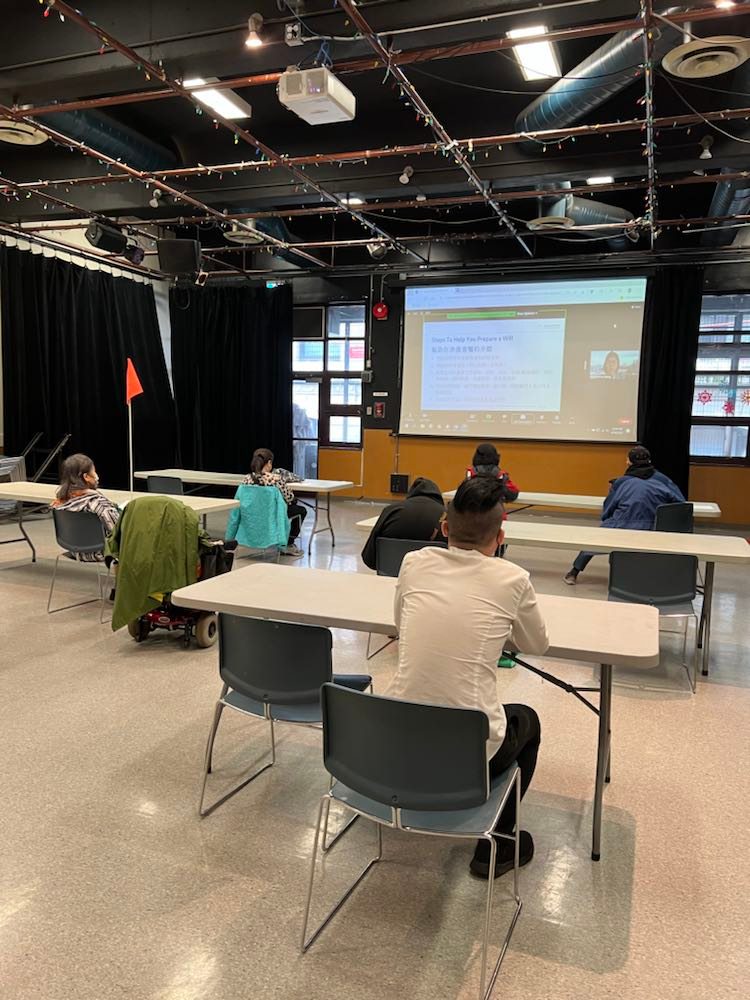
Thanks Annie!
Vancouver Area Network of Drug Users (VANDU) remember those they have lost
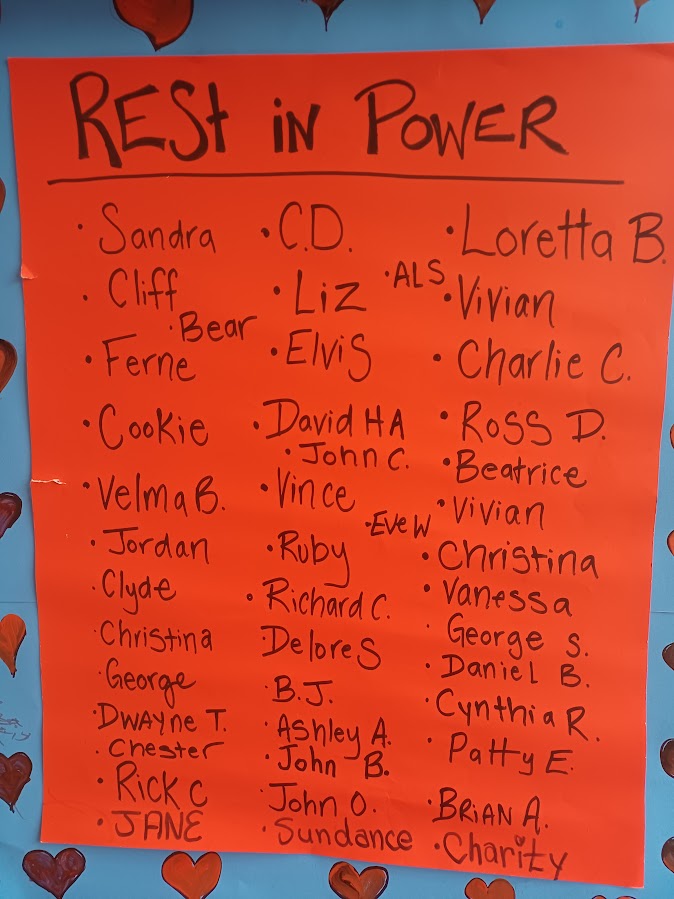
Rest in Power.
Walking tour of the Mountain View Cemetery
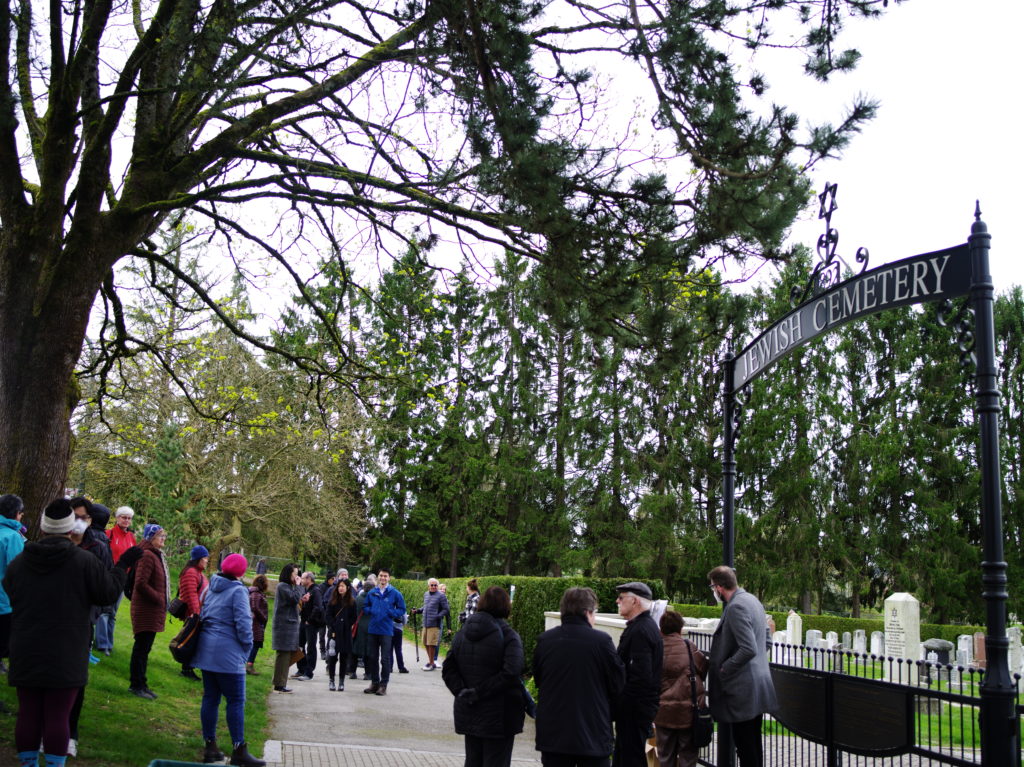
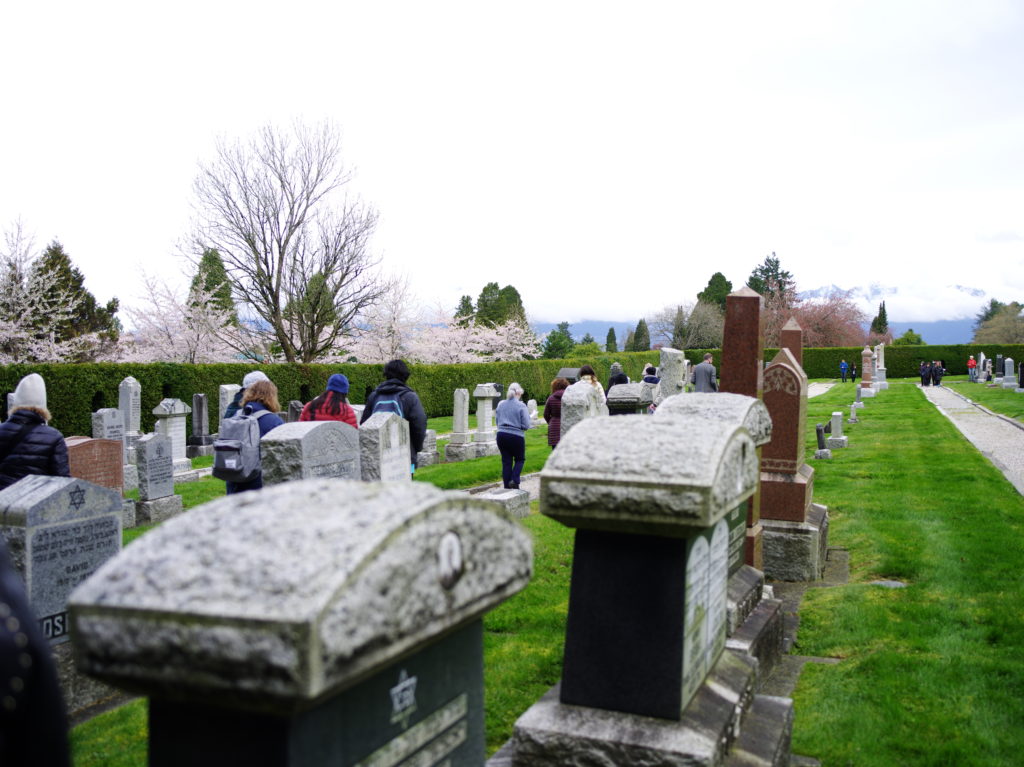
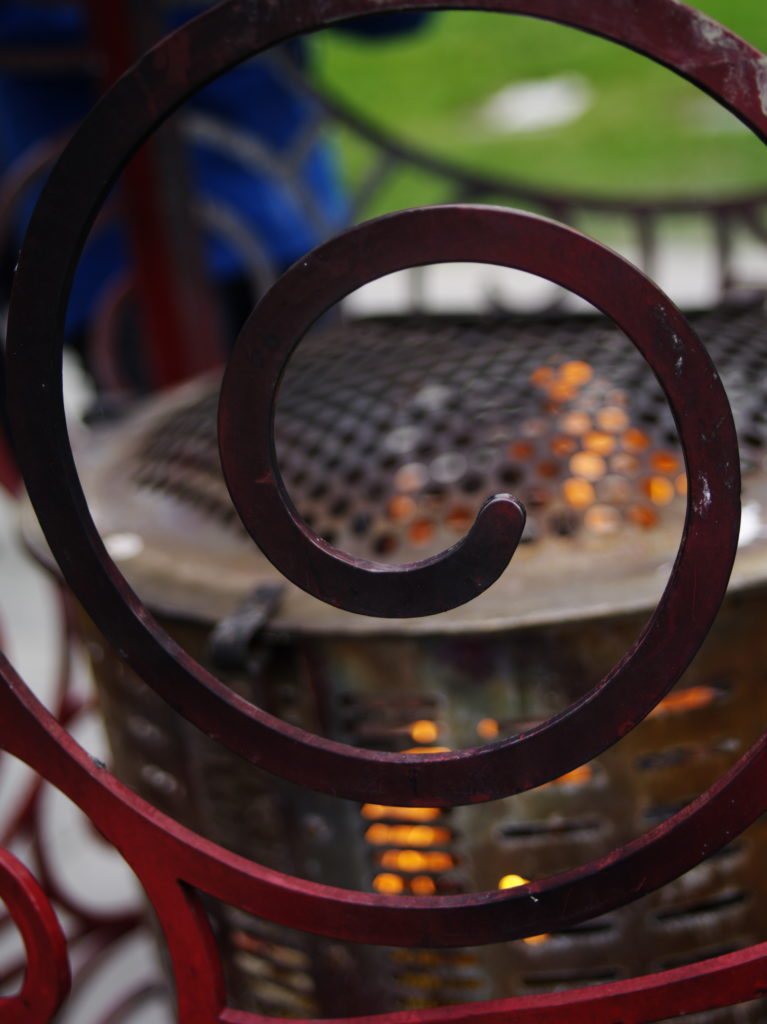
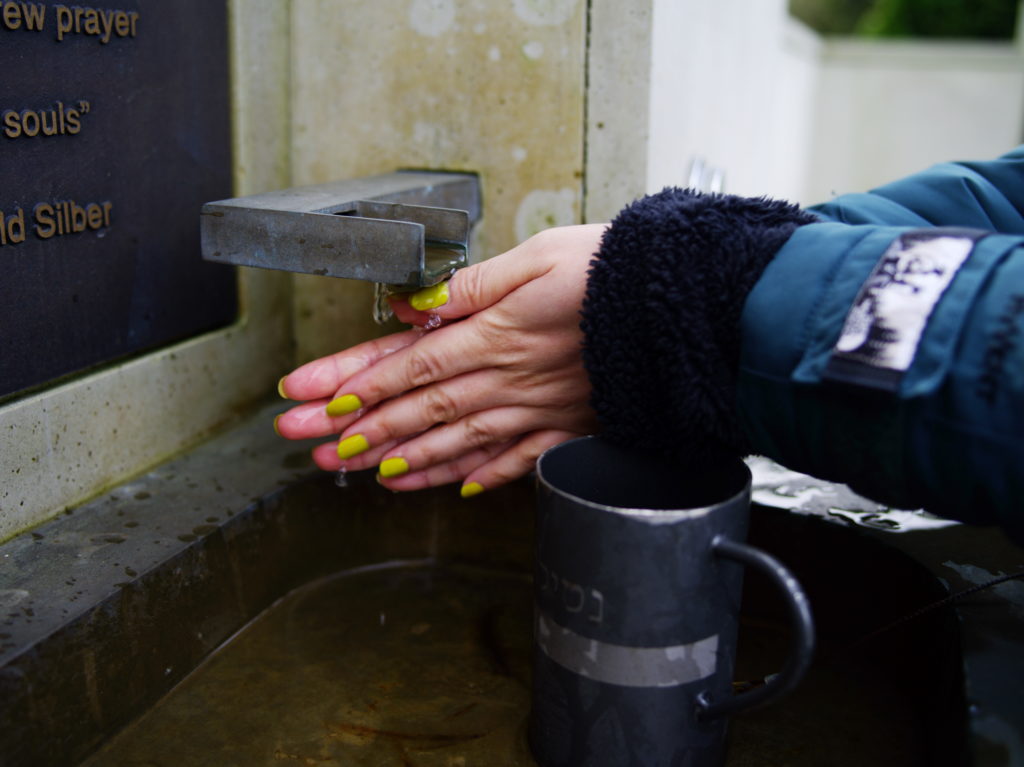
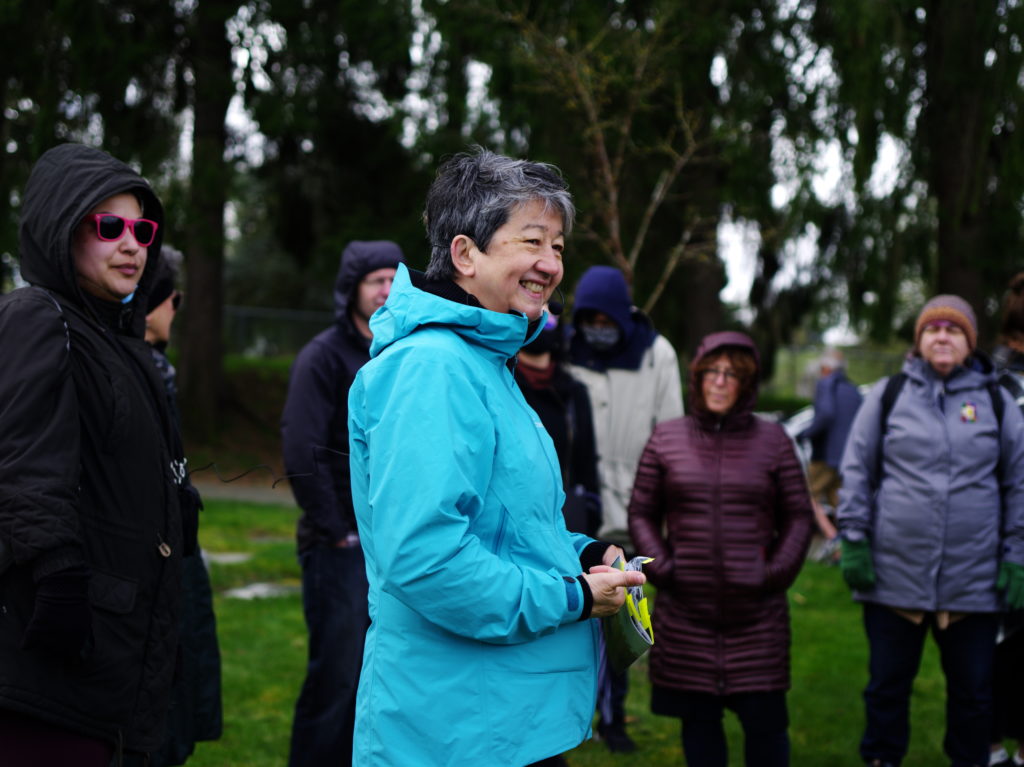
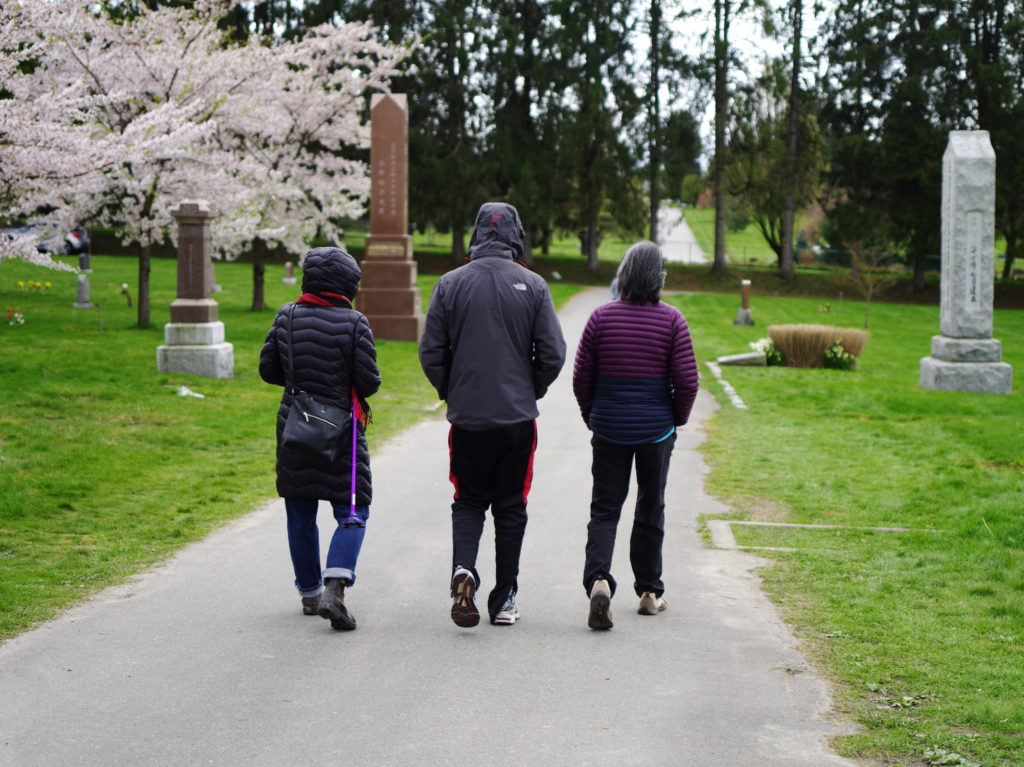
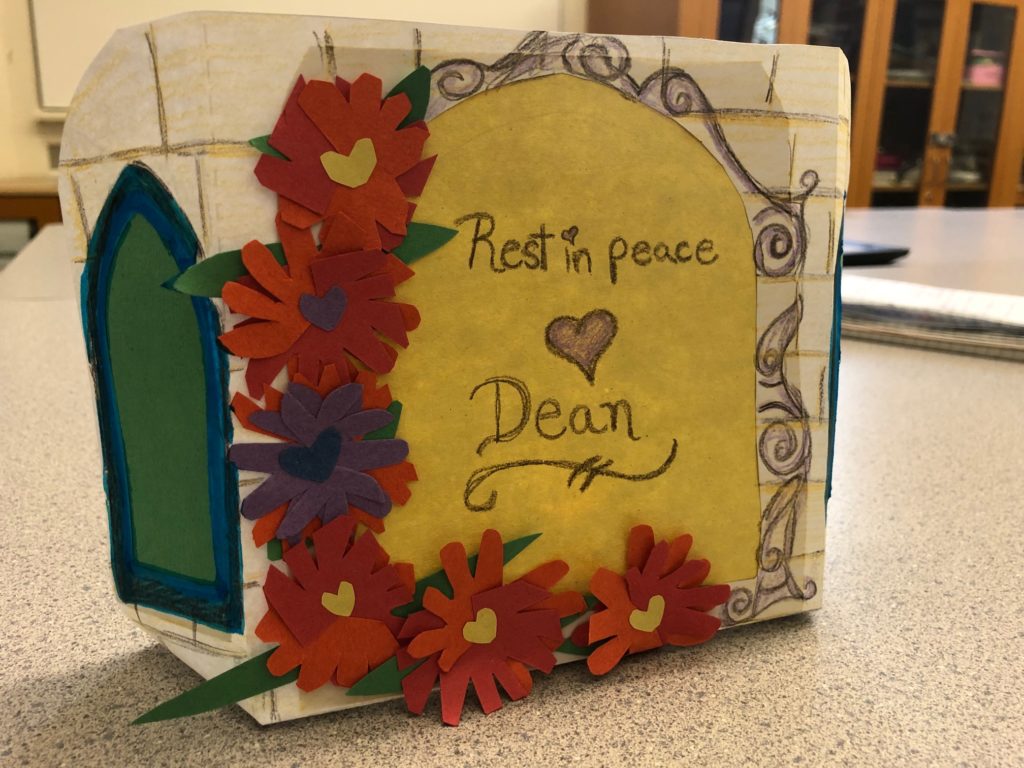
The workshop was open to frontline staff and volunteers serving the public in the DTES.
Participating in the workshop, I found the instructional portion useful, as I’m not someone who necessarily knows how to process or express grief and the shrines I think will be a nice way to honor someone who has passed.
The sharing portion of the workshop was a very moving and intimate experience and even though I’m a fairly closed off person, it helped me to share and allowed me some time and space to consider my loved ones who I’ve lost. It also allowed me to shape some of my thoughts and fears for the people we serve and work with in the DTES.
I’m very grateful to Marina and Paula for creating the space for us.
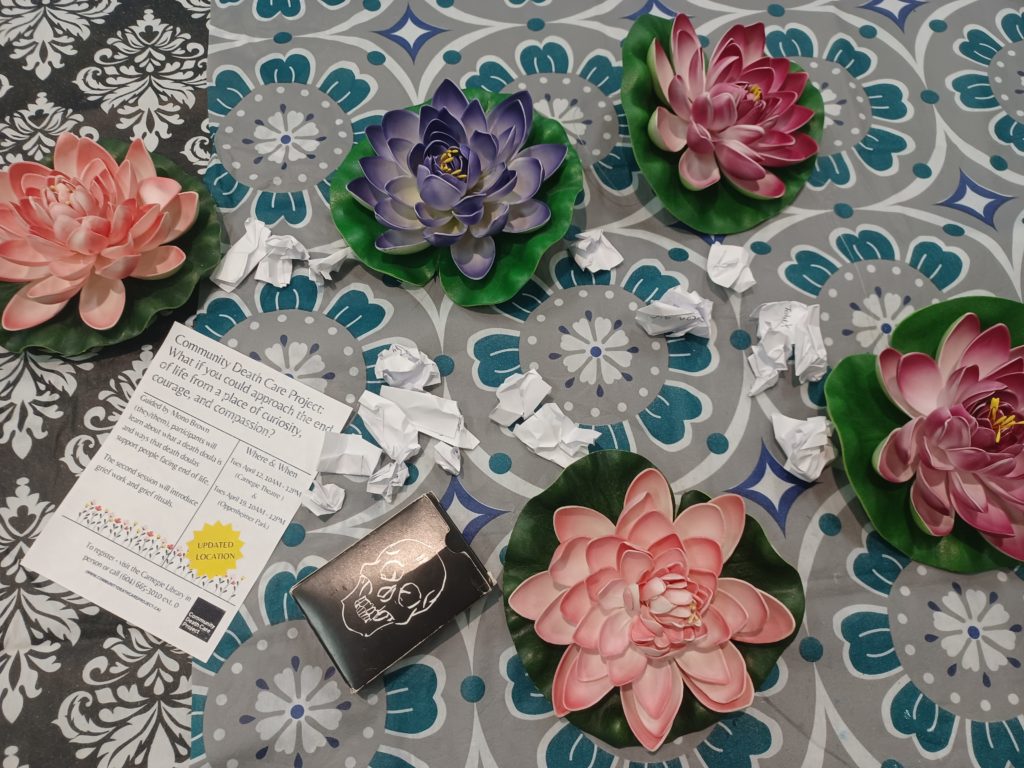
I really valued hearing others’ stories of loss and the chance to share my own thoughts. I left with an appreciation for what I enjoy about living and a sparked curiosity for the process of letting go at the end of life. (IS)
Mono Brown will be joining us again at Oppenheimer Park on Tuesday, April 19th from 10:00AM – 12:00PM for a session that focuses on grief work and grief rituals.
- Advance Care Planning – Wallet CardView or download a PDF of wallet card mentioned in Melody and Jas’ Advance Care Planning presentation.
- Advance Care Planning (ACP) ResourcesFrom the BC Centre for Palliative Care (bc-cpc.ca) – these resources will help you make your advanced care plan. Have you thought about your wishes for your future health care and personal care? Have you talked about your wishes with the people you trust, like family and friends? This website can help you learn more… Continue reading Advance Care Planning (ACP) Resources
- Advance Care Planning – Slide PresentationView or download a PDF of Melody and Jas’ slides from their Advance Care Planning presentation.
- Wills and Estates – Slide PresentationView or download a PDF of Chris Heslinga’s slides from his Introduction to Wills and Estates presentation.
